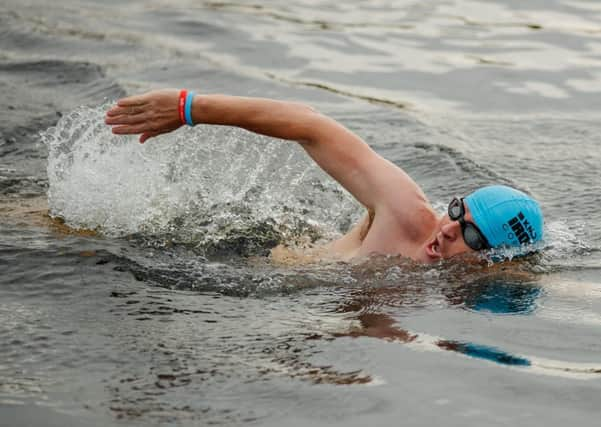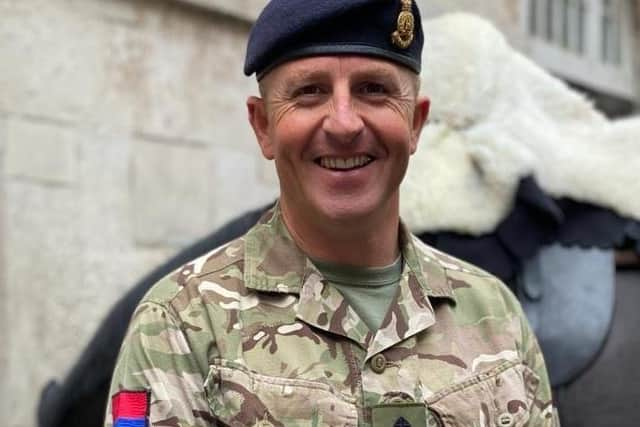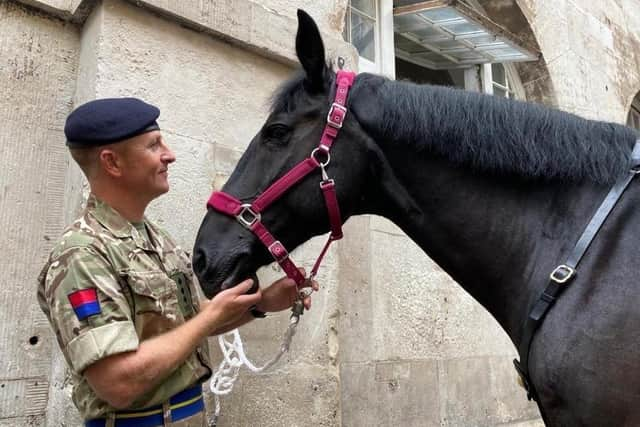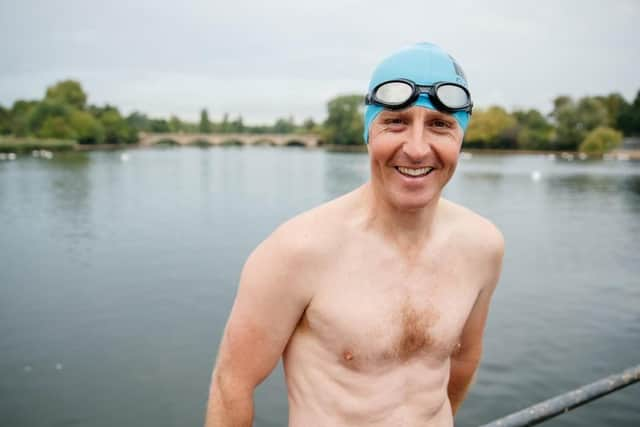Sleaford Army Officer set to swim the Channel to raise awareness and funds for mental health issues


In 1875, Captain Matthew Webb made the first recorded swim of the English Channel without artificial aids. Now, nearly 145 years later, Captain Harry Grantham looks set to match this achievement as he aims to raise awareness of mental health issues, especially amongst service personnel.
The Captain from Sleaford currently serves as the Equine Assurance Officer at the London District headquarters, where he is responsible for assuring the training of all the mounted units, including the Household Cavalry Mounted Regiment and The King’s Troop Royal Horse Artillery.
Advertisement
Advertisement
Several years ago, Captain Grantham learned the true value of friendship when colleague Major Nigel Mudd noticed a change in his behaviour and encouraged him to open up and seek help for personal problems he was struggling with at the time.


In his case the Army Welfare Centre provided “invaluable” support, quashing the stigmas surrounding depression and anxiety and enabling Harry to find a path to becoming mentally healthy.
Speaking about the upcoming challenge, Harry said: “If I can help make at least one person’s life better as a result of the money and awareness raised by my Channel swim I’ll be delighted.”
With his Cross-Channel Swim, Captain Grantham hopes to encourage those experiencing mental health issues to come forward and seek help at an early stage rather than feeling there is no way forward in life.
Advertisement
Advertisement
An early intervention from a friend was crucial to overcoming personal struggle, and although mental health issues can often feel like a private battle, Captain Grantham also wants to highlight the role that everyone can play in another’s wellbeing. He asks that “if you see something, even something small, go and help them”. This early unbidden intervention he says can help prevent individuals thinking that there is no way forward and potentially save lives.


Shortly before his assignment to London District a Gunner in the Royal Horse Artillery tragically took his own life.
Captain Grantham takes his physical fitness very seriously, but is drawn to swimming the English Channel by the incredible mental challenge that it offers, with his coach describing the event as “80 per cent mental and 20 per cent physical”. Since 1875 only 1,881 people have achieved this feat and Captain Grantham aims to add his attempt to this list with a target finish time between 12 and 14 hours.
Poignantly it’s the same friend that helped him all those years ago when he was battling personal demons that is supporting him now with his assault on the waves. Former serving Major Nigel Mudd will be in the support boat on Monday (September 7) with other friends and members of his old regiment the Royal Artillery.
Advertisement
Advertisement
Training has been progressing well with 30-40 kilometres of open water swimming each week, predominantly down at Dover harbour. But it is very much a team effort and everyone is working hard to make sure Harry’s attempt is successful.


Capt Grantham said: “I’m hoping for calm waters but as I tell the soldiers who take their horses to the beach each year to improve their riding abilities, the most important thing is to have Army Confidence – if you can believe you can do something, you’ve done all the preparations you need and you’ve got a strong team supporting you, nothing can stand in your way.”
Every year one in four people in the UK will experience a mental health issue and in Defence as a whole it remains the primary cause of sickness absence.
He said everyday pressures in work and personal lives contribute to general state of wellbeing and fitness to work. Debt, bereavement, workloads, relationships and caring responsibilities are just some of the issues in and out of the workplace which have the potential to impact wellbeing and ability to do our jobs well.
Advertisement
Advertisement
He said: “Unfortunately, there is a stigma still attached to mental health illness and although the NHS and Defence Medical Services mental healthcare services are of a high standard and relatively easily accessed, many choose not to seek help. This may be due to the effects of stigma, either due to the personal meaning attached to help-seeking, or due to a wider concern about career progression and/or involvement of medical professionals.
“Closer to home and something that I also did not share with others was my own battle last year. Despair set in that I was unable to vocalise due to the breakdown of my marriage and being forced to leave the family home and my young children behind. I was also assigned far away from all my friends and family (like many others) and therefore those around me would not have been able to tell that my behaviour was anything other than normal.
“Over time this situation got worse and it wasn’t until a visit to my own unit in Tidworth that it was revealed by a good friend Maj Nigel Mudd who was also the Welfare Officer. During a chat he noticed a thread of difference in my personality and behaviour and he pulled it. This was the moment I released all the thoughts in my head and the pressures in my life. Subsequently I received invaluable support from the Army Welfare Service.”
Captain Grantham enlisted in the British Army in 1995 where he joined The King’s Troop Royal Horse Artillery, the mounted ceremonial battery whose role includes the firing of royal salutes to mark the grand occasions of state. Following a successful career as a soldier, including a stint as the Regimental Sergeant Major of The King’s Troop (the most senior position a soldier can reach before commissioning), Captain Grantham attended the Royal Military Academy Sandhurst’s Late Entry Officer Course where he gained his commission in 2017.
Advertisement
Advertisement
All money raised from the event is going to the Royal Artillery Charitable Fund who work to support Gunners who are dealing with mental health illness like Captain Grantham. A Just Giving page here explains his personal struggle in more detail while highlighting the services on offer to help combat mental health issues.